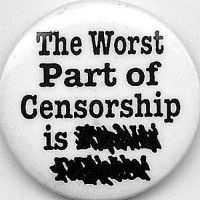Large Torrent Site to be Blocked by Russia’s SOPA
lundi 26 août 2013 à 22:21It’s been an interesting first month for Russia’s new anti-piracy plan.
After a tentative start with only a handful of rightsholders filing complaints, it quickly became clear that in order for the system to work effectively, movie and TV companies would have to be a little better organized.
Thursday last week it was revealed that out of a total of 19 submitted complaints just 11 had been accepted after administrative faults were found with the others.
In the coming months, in which the law will almost certainly be amended to protect other copyright works including music and lyrics, it is expected that copyright holders will become more adept at supplying the required paperwork.
But despite the early hiccups, the law is already showing its teeth.
According to the Roskomnadzor communications agency, a large file-sharing site will soon be censored by locals ISPs after failing to respond appropriately to copyright complaints.

Rutor.org, a public torrent site running its own tracker, operates out of Sweden but is targeted at Russia. According to Alexa the site is the 32nd most-visited site in Russia. Around 9% of the site’s traffic comes from Ukraine where it is the country’s 60th most-popular site.
Rutor stands accused of making available movie and TV show content without obtaining permission from rightsholders. Its domain will shortly be added to Russia’s national blocklist meaning that it will be rendered inaccessible to users of the Runet not running a proxy or VPN service.
Another site has seen its luck change. OpenSharing.org indexes primarily Russian content but actually operates out of neighboring Ukraine. It is less popular with Russians than Rutor and is the country’s 894th most-popular domain. After being marked for blocking last week, it has now complied and will be removed from the blocklist.
Other sites that face being blocked include torrent sites turbofilm.tv and fast-torrent.ru, plus streaming portals online.stepashka.com, seasonvar.ru, smotruonline.ru, intv.ru and kinozal.tv. Roskomnadzor reports today that four of the sites have complied and will be removed from the blacklist.
Under the new law blocks are carried out against a site’s IP address so there’s a possibility that unconnected domains could also be censored if they share the same IP. Rutor’s IP is not currently in use by any other site.
In a cruel twist, Rutor.org was one of the driving forces behind the successful 100K+ signature petition to have Russia’s anti-piracy law withdrawn. That petition will now be reviewed by the government.
Source: Large Torrent Site to be Blocked by Russia’s SOPA


 All around the world there are initiatives that require Internet providers to block access to child pornography.
All around the world there are initiatives that require Internet providers to block access to child pornography. This week we have four newcomers in our chart.
This week we have four newcomers in our chart.  Payment services are increasingly taking action against VPN providers, and as of today
Payment services are increasingly taking action against VPN providers, and as of today